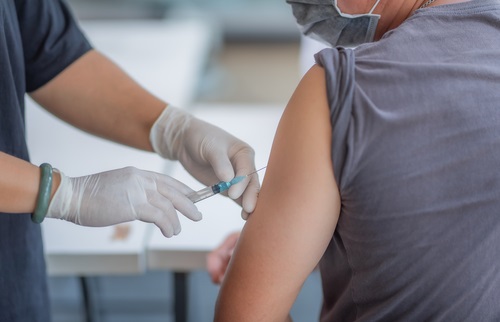
September 14, 2021 – Last week, President Biden unveiled a new six-pronged approach to curb a raging pandemic that included new vaccine mandates for federal workers as well as private-sector employees – as many as 100 million Americans. These new mandates, Biden said, are an effort to “protect vaccinated workers from unvaccinated co-workers.”
His plan is to partner with OSHA to push companies with 100 employees or more to mandate vaccines or require weekly testing for the unvaccinated. Any companies that ignore this policy could face penalties of up to $14,000 for each violation, i.e. unvaccinated employee.
By penalizing large with such a significant fine, Biden is all but ensuring that employees of large companies will either be vaccinated or let go. This is by far the most extensive reach that the federal government has made in COVID-19 mandates, and it’s been met by some fervent pushback from the business community.
A pandemic of the unvaccinated
Since January, over 175 million Americans have been vaccinated against COVID-19. That’s nearly three quarters of the eligible population in the United States, leaving a quarter of Americans unvaccinated, nearly 80 million.
Even with the proof that the vaccine is working, and even keeping most breakthrough cases out of hospitals, there is still a lot of hesitancy to get the vaccine. Certainly, some of those holdouts are taking a stance for a political reason, but what else is keeping people from getting vaccinated?
According to a study conducted from June 9 through June 21, 2021, from the United Census Bureau, more than half of unvaccinated Americans live in households that make less than $50,000 a year. Julia Raifman, a health policy professor at Boston University, said, “A lot of low-income workers are working hard to provide food and housing. That may mean it’s hard for them to find a time to get the vaccine.”
With the new mandates in effect, the “pandemic of the unvaccinated” will put punitive measures against economically vulnerable people who either can’t afford to take time off if they experience side effects or can’t afford the transportation, whether they are spending money on gas or public transportation, to go get vaccinated.
Part of Biden’s stipulation for the vaccine mandate is that companies are required to give paid leave to these employees, which should quell the fears of taking unpaid leave to get the vaccine. But what about smaller businesses that employ less than 100 employees? Biden is only enforcing these mandates on companies that employ 100 people or more, but some small businesses could follow his trend and not be required (or able) to give paid time off.
How will this affect small businesses?
In a Washington Post article, Kevin Kuhlman, vice president of federal government relations for The National Federation of Independent Business, expressed concern over how this was going to affect small business owners and employees. Kuhlman said, “Small business owners and their employees want to operate in a safe and healthy manner that allows them to stay open. Additional mandates, enforcement, and penalties will further threaten the fragile small business recovery.”
This mandate could put further strain on small businesses after 18 months of continued disruptions. With tight resources and labor shortages, smaller businesses are still recovering from the fallout of 2020.
The vaccine mandate could put small businesses in a tough place where they are paying for additional employee sick leave with a smaller workforce. Employees of businesses that don’t meet the criteria are no better off than before.
